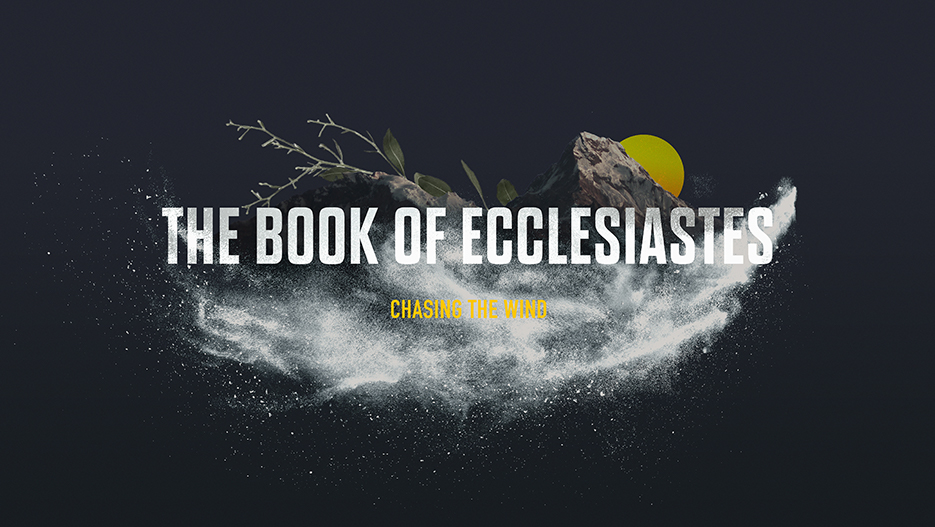Tonight we begin our Lenten Study of the Book of Ecclesiastes with Chapter 1. Please try to read the whole work, or at least the first few chapters before tonight. Chapter 1 begins with the proclamation of the utter and complete futility and meaninglessness of the world. In the remainder of his work, the Speaker will attempt to find meaning in this world, however transient.
One of the Speaker’s companion phrases to havel is re’ut ruah. (See, Eccl. 1:14, 17). Re’ut has the meaning of a longing, striving, or desire. Ruah means wind, breath, or spirit. The literal translation is a “chasing after the wind.” The phrase connotes the idea of longing after something that can never be obtained. Therefore, the KJV and other translations will render the term to mean “vexation of the spirit.” The Speaker wants to convey to us that our search for meaning in this world will be no more successful that our attempt to catch the wind by chasing after it.
Another phrase that the Speaker uses throughout his work is “under the sun.” See, Eccl 1:3, 13. Everything under the sun is havel or re’ut ruah. It is this phrase that historically preserved the canonicity of Ecclesiastes. In the traditional Rabbinic and later Christian interpretation of Ecclesiastes, the Speaker’s pronouncement that everything is “vanity” or “chasing after the wind” is limited to only those things of this world and does not apply to the things in the world to come. Therefore, as we listen to the Speaker pronounce the meaninglessness of all things, keep in mind that he is only speaking about those things which will necessarily pass away. It is, of course, these same things that the New Testament confirms will pass away as well. Matt 24:35, Rev. 21:1.
From a literary point-of-view, there are several things to point out in this chapter. First, is the introductory poem which emphasizes the totality of the Speaker’s message that nothing changes nor can be changed. Eccl. 1:4-7. At this time, the four fundamental elements of the universe were earth, fire, wind, and water. This introductory poem hits each of these four elements – the earth, the sun, the wind, and the rains – and states that none of these forces can affect any change for all simply return to their beginning to begin their work again. If the fundamental natural forces cannot effect change, then how are we to do so?
In verse 12, we first meet the Speaker personally. It is here in vv. 12-14, the Speaker tells us his task and the source of his teaching – he applied his mind to seek and explore wisdom and he observed all the things that take place on the earth. It is the incongruity of these two sources of knowledge – wisdom and observation – that causes his consternation and despair. And as his wisdom increased, so did his despair. The Speaker begins his teaching with the recognition of the Absurd – life makes no coherent sense, life is not fair, and life is not just. For the Speaker and for us, therefore, the question arises as to how he/we respond to this recognition. This is the story of Lent.
Dinner is at 6. The menu is grilled chicken sandwiches. Discussion about 6:45. Compline at 8. Hope to see you here.
I met a traveller from an antique land
“Ozymandias” – Percy Bysshe Shelley
Who said: Two vast and trunkless legs of stone
Stand in the desert… near them, on the sand,
Half sunk, a shattered visage lies, whose frown,
And wrinkled lip, and sneer of cold command,
Tell that its sculptor well those passions read
Which yet survive, stamped on these lifeless things,
The hand that mocked them and the heart that fed;
And on the pedestal these words appear:
‘My name is Ozymandias, king of kings;
Look on my works, ye Mighty, and despair!’
Nothing beside remains. Round the decay
Of that colossal wreck, boundless and bare
The lone and level sands stretch far away.

